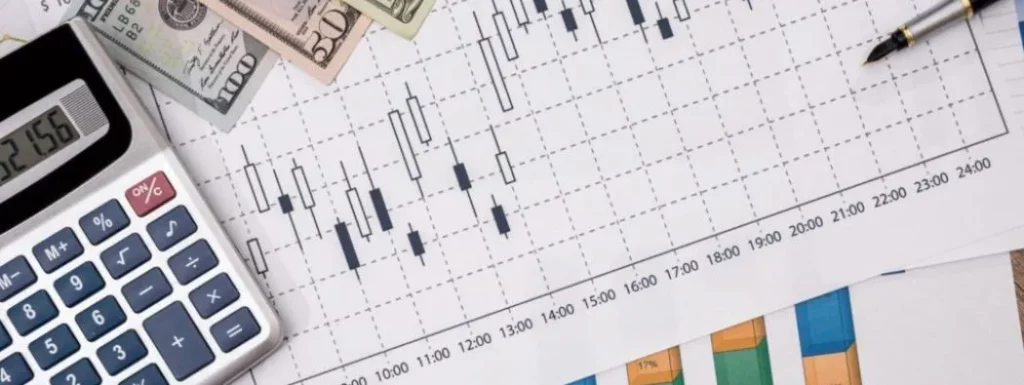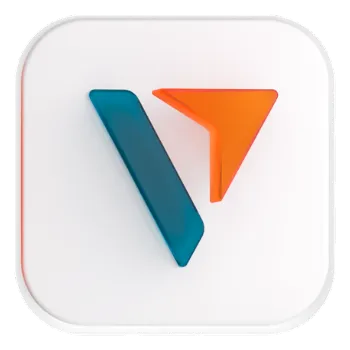Contracts for difference (CFD) and forex continue to be amongst the most used trading instruments in the global market. Each of these two instruments contains different perks and shortcomings, and we’re going to make a comparison between the two.
Let’s look at the unique features of each and find out which will work well for you.
Key Points
- CFDs allow traders to speculate on price movements of various financial assets without owning them, offering flexibility and the potential for profit in both rising and falling markets.
- Forex trading involves the exchange of currency pairs, operating 24/5 with liquidity, influenced by economic factors, allowing traders to capitalise on exchange rate fluctuations.
- In the comparison of forex vs CFD, CFDs allow trading on diverse asset types with potential extra fees. On the other hand, forex involves currency trading primarily with spread costs.
What is CFD?
CFDs are a type of derivative trading instruments. This contract allows traders to speculate on the price movement of the financial assets such as such as stocks, commodities, indices, or currencies [1].
This eliminates the need to possess the underlying assets involved in the trade. CFDs offer traders a way to potentially capitalise on market opportunities. They can profit during both bull (going long) and bear (going short) trends by predicting the direction of price movements.
How CFD Trading Works?
CFD trading enables traders to speculate on the rise or fall of market prices of various underlying assets without owning them. For example, instead of physically buying or selling gold or silver, traders can buy or sell CFDs that track the prices of the financial market.
If a trader believes the product prices will drop, they can go short on the specific asset. This means the trader is selling the borrowed asset using CFD before repurchasing it at a lower price later on to potentially profit from the price difference. This is commonly referred to as short selling [2].
What is Forex?
Forex is used to refer to the foreign exchange market. Forex trading involves converting one currency into another, and it always involves trading a pair of currencies. In forex trading, a currency pair refers to the valuation of two distinct currencies, with one currency’s value being quoted against the other.
How Forex Trading Works?
In forex trading, traders buy and sell currencies based on exchange rates without physically exchanging the money. This is similar to exchanging currency for a trip abroad, but it happens electronically on trading platforms in the over-the-counter (OTC) market [3].
Traders have the potential for profit or loss by speculating on exchange rate fluctuations. They purchase a currency pair when they anticipate its value will rise and sell when they predict it will fall.
The forex market operates 24/5, as it is not bound to a physical location and transactions take place electronically among participants worldwide. There are four major trading sessions:
- Sydney
- Tokyo
- London
- New York
Each trading session offers its own unique trading characteristics and levels of liquidity.
Learn more about the basic of forex trading here.
CFDS vs Forex: Similarities
1. CFD and Forex Trading Have a Similar Trade Execution Process
You can use similar price action strategies to enter and exit bullish or bearish markets. Also, you can trade both CFDs and Forex pairs over the counter, on the same platform, using similar charts and pricing strategies.
CFDs and currency pairs don’t have to be listed on exchanges for you to trade them. Instead, both instruments can be traded between you and your broker on an online platform.
2. Don’t Need to Own Underlying Assets
You can trade forex or CFDs without owning the actual underlying assets. You only speculate on their price movements. For instance, you can buy the EUR/USD pair without buying any actual Euros or selling any US dollars [4].
3. Both Instruments Don’t Pay a Commission
Unlike other instruments, trading contracts for differences and forex markets doesn’t attract commissions. Traders only pay the difference between the asking price and the offering price, also known as Spread. Sometimes, there may be other costs, except commissions.
4. Both Markets Offer High Levels of Liquidity
Both CFDs and forex markets have excellent liquidity. That means you can fill in your order at any time, at your preferred price. It also means that you have the flexibility to enter or exit any forex or CFD position as you deem fit.

CFDS vs Forex: Differences
1. Choice of Trading Instruments
CFDs allow you to trade a broader range of assets, including forex trading CFDs. However, you can only trade currency pairs in forex markets.
Many forex brokers will give you access to all the eight major currency pairs and other minor currencies. The eight majors are:
- GBP/USD (British pound/US dollar)
- AUD/USD (Australian dollar/US dollar)
- EUR/USD (euro/US dollar)
- USD/JPY (US dollar/Japanese yen)
- USD/CHF (US dollar/Swiss franc)
- USD/CAD (US dollar/Canadian dollar)
- USD/HKD (US dollar/Hong Kong dollar)
- EUR/GBP (euro/British pound sterling)
By engaging in CFD trades, you can expand your market reach to include a vast array of options, such as numerous currency pairs and countless other markets. Some of the markets you can access with CFDs include [5]:
2. Cost of Trading
Both CFDs and forex trades incur spreads. As a CFD trader, you may, however, meet extra fees along the way. Factors like market conditions and your broker can affect your trading costs.
For example, one common additional charge paid on CFDs is a holding fee. Your broker will charge you holding fees for any contracts you choose to hold overnight.
Another common additional charge is commissions from the transaction costs you incur trading Share CFDs.
3. Market Forces
Economic factors and international trading events can affect forex markets. Some of these factors can also include geopolitical events, shifts in a regions’ job markets, and changes in monetary policies [6].
The CFD market is mostly affected by the forces of demand and supply, or a shift in the trend of a specific business sector. A great example of this is the demand for cryptocurrencies, where the number of coins in supply will affect the cryptocurrency CFDs market.
4. Size of Traded Contracts
In forex trading, the standard lot size for all currency pairs is 100,000 units. But, brokers can offer you leverage and allow you to trade smaller lots, including mini (10,000), micro (1,000), and nano (100) lots. Learn more about the different lot sizes here.
The size of a CFD contract, on the other hand, varies between markets. For example, while shares are generally one share per contract, metals trade in standards of 100 ounces. Therefore one CFD contract would represent 100 ounces of a given metal, like silver.
5. Trading Hours
The trading periods for CFDs and forex markets vary. For example, you can trade the forex markets for 24 hours a day, but only on Monday to Friday. This trading period allows you to make flexible trading decisions, at various hours of the day, regardless of where you are globally [7].
Except for forex CFDs, you can trade other CFDs over the weekend too. However, some markets are only available during certain time periods.
Factors in Deciding Between CFDs and Forex
Market Diversity
- Unlike forex which limits you to currency pairs only, CFDs allow you to trade a wider range of assets, including forex.
- There isn’t much diversity in the forex markets. For example, most forex brokers offer the major eight currency pairs, but also allow you to trade up to 70 other minor currencies.
- CFDs give you more freedom. For instance, you can trade commodities, indices, shares, ETFs, forex and more using CFDs. These markets offer plenty of diversity for all your trade ideas.
- If you’re looking for opportunities to diversify and hedge your trades, then CFDs could do you better than just the forex markets.
Availability
- The CFD markets aren’t always available. For example, CFDs are banned entirely in the US and Brazil. If you’re in these markets, you won’t be able to access CFDs in any capacity. However, in many parts across Europe, in Australia, the UK, and the Asia-Pacific, you can get access CFDs [8].
- Forex markets are available across the world, and you can trade them directly through regulated exchanges or indirectly through brokers.
- If you’re in a market that has tough regulations against trading CFDs, you may opt for forex trading.
Price Determinants
- Most times, the price of CFDs is determined by the supply and demand of the underlying asset. The higher the demand for the asset, the higher the demand for the correlating CFD. That makes CFDs ideal for trading price movements, since all you have to do is observe the movement of the underlying asset.
- Forex markets move largely because of fundamental factors. For this reason, forces such as geopolitical events, government policy and other economic indicators have a massive influence on the price action of currencies.
- If you prefer to speculate on price changes, then CFDs are a good bet. If you prefer to use fundamental analysis to time your trades, or create a strategy, then forex would be ideal.
How to Trade CFD and Forex
Firstly, you need to open and fund a trading account with a reputable CFD broker. Do your research on the broker of choice and ensure that it has a good reputation in the industry. Here’s an article to help you find the best forex trading platform.
Once you have opened an account with the broker of your choice, fund the account through your preferred payment method. It’s important to research the various account types, trading platforms, and margin requirements available, as some are better suited to different needs and trading styles.
Secondly, you need to develop a trading strategy or style that suits your goals and risk tolerance. A trading strategy helps you manage your risk and make informed decisions when entering and exiting trades. You can use technical and fundamental analysis to identify trading opportunities and set entry and exit points.
Lastly, you need to choose your currency pair or asset to trade. It is essential to research and understand the factors that influence the price movements of your chosen currency pair, such as economic data, geopolitical events, and central bank policies. Once you have chosen your currency pair, you can enter a trade by buying or selling it using your trading platform. Remember to monitor your positions closely and use risk management tools to minimize your losses.
Final Thoughts
Investors looking to take advantage of market opportunities, geopolitical events and other risk events can consider trading forex. If you don’t mind the amount of regulation on the trading instrument but still want to diversify your portfolio, then CFDs can be an option for you.
CFDs face fewer hurdles in terms of market value than forex, where there are multiple determinants of the market value. Ready to start trading forex CFDs? Vantage offers a demo account that lets you practice trading with virtual credit before you start trading with real money.
You can also open a live account if you are ready to take your first step into the trading world.
References
-
- “What Is CFD Trading And How Does It Work? – Forbes Advisor”. https://www.forbes.com/uk/advisor/investing/what-is-cfd-trading/ . Accessed 8 May 2023.
- “Short Selling: Definition, Pros, Cons, and Examples – Investopedia”. https://www.investopedia.com/terms/s/shortselling.asp . Accessed 8 May 2023.
- “Forex (FX): How Trading in the Foreign Exchange Market Works – Investopedia”. https://www.investopedia.com/terms/f/foreign-exchange.asp . Accessed 8 May 2023.
- “Forex vs CFDs – AMP Global”. https://www.ampglobal.com/education/forex_vs_cfds.html . Accessed 7 April 2022.
- “Contract for Differences (CFDs) Overview and Examples – Investopedia”. https://www.investopedia.com/articles/stocks/09/trade-a-cfd.asp . Accessed 7 April 2022.
- “What is Fundamental Analysis? – Babypips”. https://www.babypips.com/learn/forex/fundamental-analysis . Accessed 7 April 2022.
- “Forex Market Hours – Babypips”. https://www.babypips.com/tools/forex-market-hours . Accessed 7 April 2022.
- “Why are CFDs not permitted in the USA? – Contracts-For-Difference”. https://www.contracts-for-difference.com/USA-restrictions.html . Accessed 7 April 2022.



